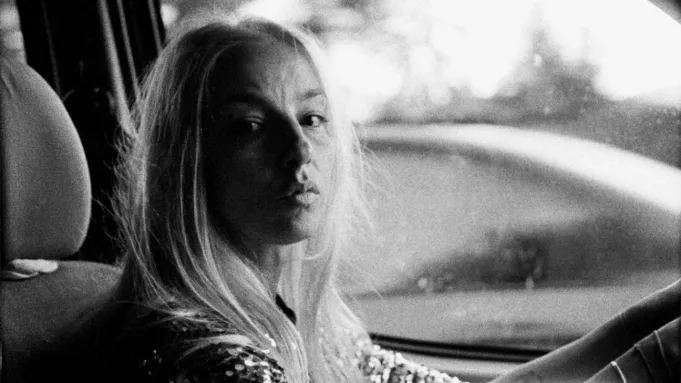Radu Jude, a prominent figure in the Romanian New Wave, continues to push boundaries with his latest cinematic creation, “Do Not Expect Too Much From the End of the World.” Premiering in competition at Locarno, this nearly three-hour freewheeling feminist satire presents a dual narrative that navigates the past and present of Romanian women grappling with the patriarchy. With its experimental storytelling and dynamic exploration of societal constraints, Jude delivers a thought-provoking experience that challenges conventions.
READ MORE: Unveiling ‘Gen V’: The Boys’ Exciting Spinoff Series Takes Superpowers to College
An Audacious Approach: Known for his innovative storytelling, Jude takes an audacious leap with “Do Not Expect Too Much From the End of the World.” The film seamlessly interweaves two parallel narratives, each following an Angela in different time periods. One Angela (Dorina Lazar) is a cab driver navigating the repressive regime of Nicolae Ceaucescu in 1981, while the other (Ilinca Manolache) is a contemporary production assistant challenging modern-day corporate structures. Both Angelas endure the weight of patriarchal systems, be it the communism of the past or the influence of corporations and the Orthodox church in the present.
A Visual Tapestry: Jude masterfully employs various visual formats to enhance the storytelling. The film transitions between muted 16mm color for the past, high-contrast black-and-white for the present, and iPhone images for Angela’s satirical videos. Rather than relying on a conventional plot, the movie provides an immersive glimpse into the lives of these women. It’s an exploration of their day-to-day existence under oppressive circumstances, highlighting their resistance against a system designed to constrain them.
Empowerment Through Creativity: The contemporary Angela emerges as a symbol of resistance through her TikTok videos created under the pseudonym Bobita. These provocative sketches become her outlet for challenging the status quo. The film’s meta-commentary on the film industry itself, referencing Godard and Blow-Up, further reinforces the theme of protest and creativity as tools of empowerment.
A Mirror Effect of Time: Jude ingeniously creates a mirror effect between the two narratives, allowing the past and present to comment on each other. This approach highlights the cyclical nature of patriarchy’s grip on women’s lives, irrespective of the era. The film’s third section presents powerful sequences that resonate with tension and absurdity, showcasing characters rebelling against their circumstances, be it a paralyzed worker turned activist or a Romanian team’s Zoom meeting overseen by an intimidating Austrian executive (Nina Hoss).
Resistance Through Ambiguity: In characteristic fashion, Jude avoids neatly tying up loose ends. The film concludes inconclusively, reflecting the often unresolved nature of real-world challenges. While the fate of both Angelas remains open-ended, their determination to reject societal norms and voice their discontent becomes an act of resistance in itself.
In the Midst of Societal Change: As the Romanian New Wave continues to evolve, Radu Jude stands as a provocateur who dares to explore uncharted territories. “Do Not Expect Too Much From the End of the World” is a powerful addition to his filmography, offering a fresh perspective on feminism, rebellion, and the enduring struggle against oppressive systems. By delving into the lives of these two Angelas, Jude presents a narrative that resonates not only with Romania’s past but also with the ongoing fight for equality and change worldwide.
